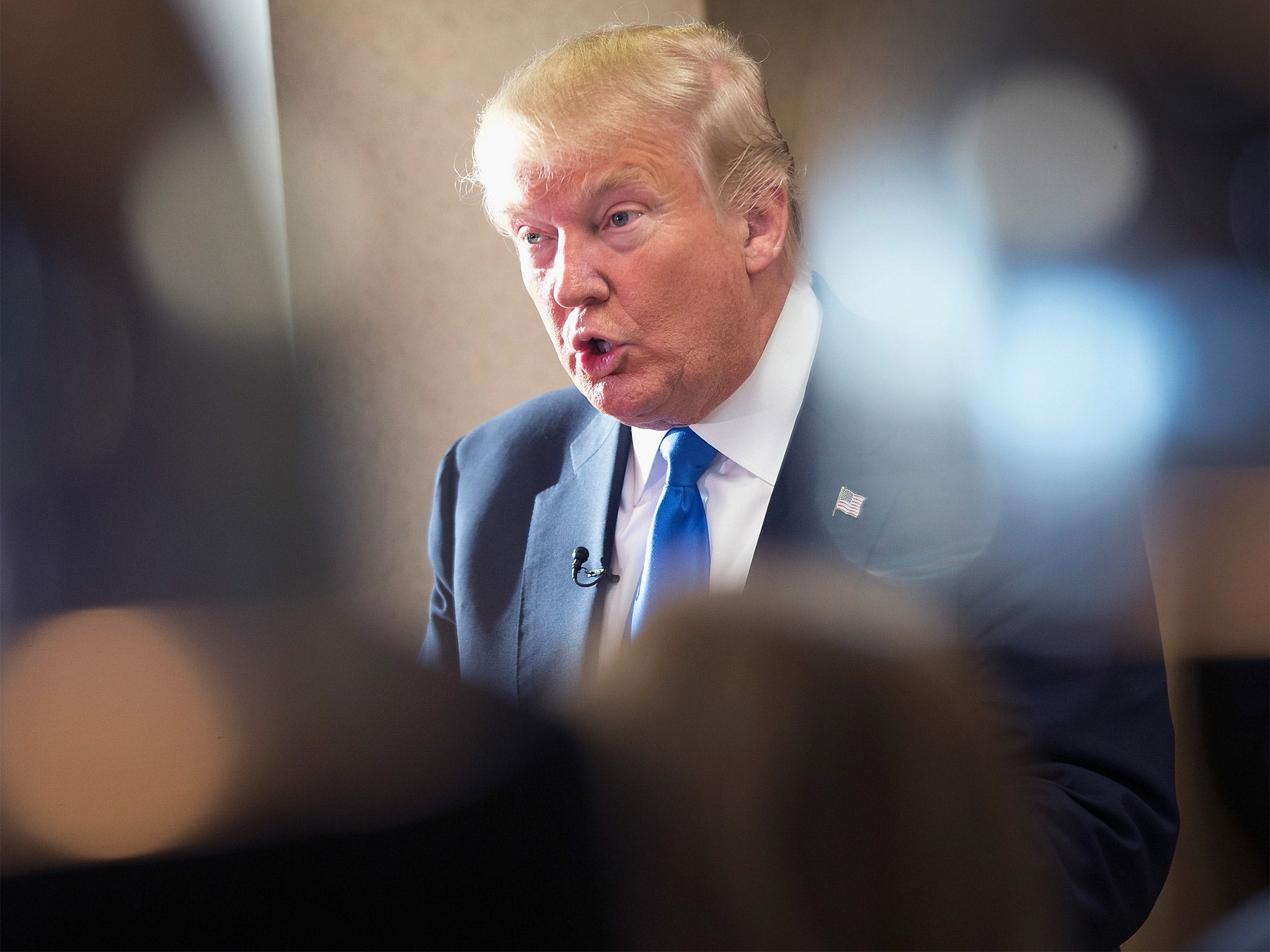US Election 2016: Donald Trump tries to inject new life into his campaign after loss to Ted Cruz in Wisconsin
Billionaire regroups after damaging week in his bid for the White House ends in primary defeat to Republican rival

Donald Trump, hoping to recover from a debilitating defeat by his White House rival Ted Cruz in Wisconsin, held a giant rally in Long Island, New York, as his campaign laid plans for a series of policy speeches designed to give him a more presidential sheen.
With his decisive win in Wisconsin on Tuesday night, Mr Cruz has given fresh hope to the “Stop Trump” brigade. It will at least make it that much harder for Mr Trump to reach the simple majority of 1,237 delegates he will need if he is to avoid an open party convention in July. In that scenario, the Republicans may have the option of trying to settle on a different nominee entirely.
While the Wisconsin result was widely anticipated – the entire party apparatus in the state had, unusually, rallied behind Mr Cruz – it nonetheless left Mr Trump wounded and uncharacteristically on the defensive. Unusually, there was no post-primary appearance by the billionaire. His campaign issued a brief statement questioning Mr Cruz’s independence.
“Ted Cruz is worse than a puppet – he is a Trojan horse, being used by the party bosses attempting to steal the nomination from Mr Trump,” the Trump campaign said.
The scramble for delegates is still being complicated by the continuing – and stubborn – presence of the Ohio Governor John Kasich, whose only hope now is precisely an open convention, where he would present himself as the best alternative to Mr Trump and Mr Cruz.
Senior aides to Mr Kasich held closed-door meetings with leading Republican figures in Washington to explain their convention strategy. While on the one hand, Mr Kasich has won only one state so far – his own – he appears to do much better than either of the other candidates in notional match-ups against either Hillary Clinton or Bernie Sanders, one of whom will be the Democratic nominee.
Mr Trump arguably suffered the worst stumbles of his campaign in the run-up to the Wisconsin ballot, particularly with respect to women voters.
He was forced to retract comments about of women being “punished” for having abortions if they were made illegal in the US, and he also defended a campaign aide who was charged with assaulting a female reporter. The calendar may help him, however, with polls for now giving him a wide lead in New York, his home state, which votes on 19 April.
The convention: Playing by the rules
Donald Trump remains far ahead in the race for delegates ahead of the Republican Party convention in July, but he may now have trouble attaining a clear majority of 1,237 or more. That means delegates in Cleveland will actually have to vote on who they think should be the nominee, in a process that could take them through several rounds. In the first round, all will still be bound by the results of the primaries or caucuses in their own state. By round three, almost all will be free to vote for whomever they like. If the mood of the hall is to dump Trump at that point, the convention could suddenly choose Ted Cruz instead, or even John Kasich. It would take some tweaking of the rules, but party leaders could even try to present an entirely new candidate, such as the House Speaker, Paul Ryan.
The rules question is already becoming critical. Any changes would have to be sanctioned by a “rules committee” of no fewer than 112 top party officials. The urgent question for the campaigns is who will sit on that committee and can they stack it in their favour? It will first be asked to consider a rule disqualifying any candidate who has not won a majority of delegates in at least eight states during the primary and caucus marathon. If that rule is not discarded, Mr Kasich will find himself out in the cold.
David Usborne
Join our commenting forum
Join thought-provoking conversations, follow other Independent readers and see their replies
Comments